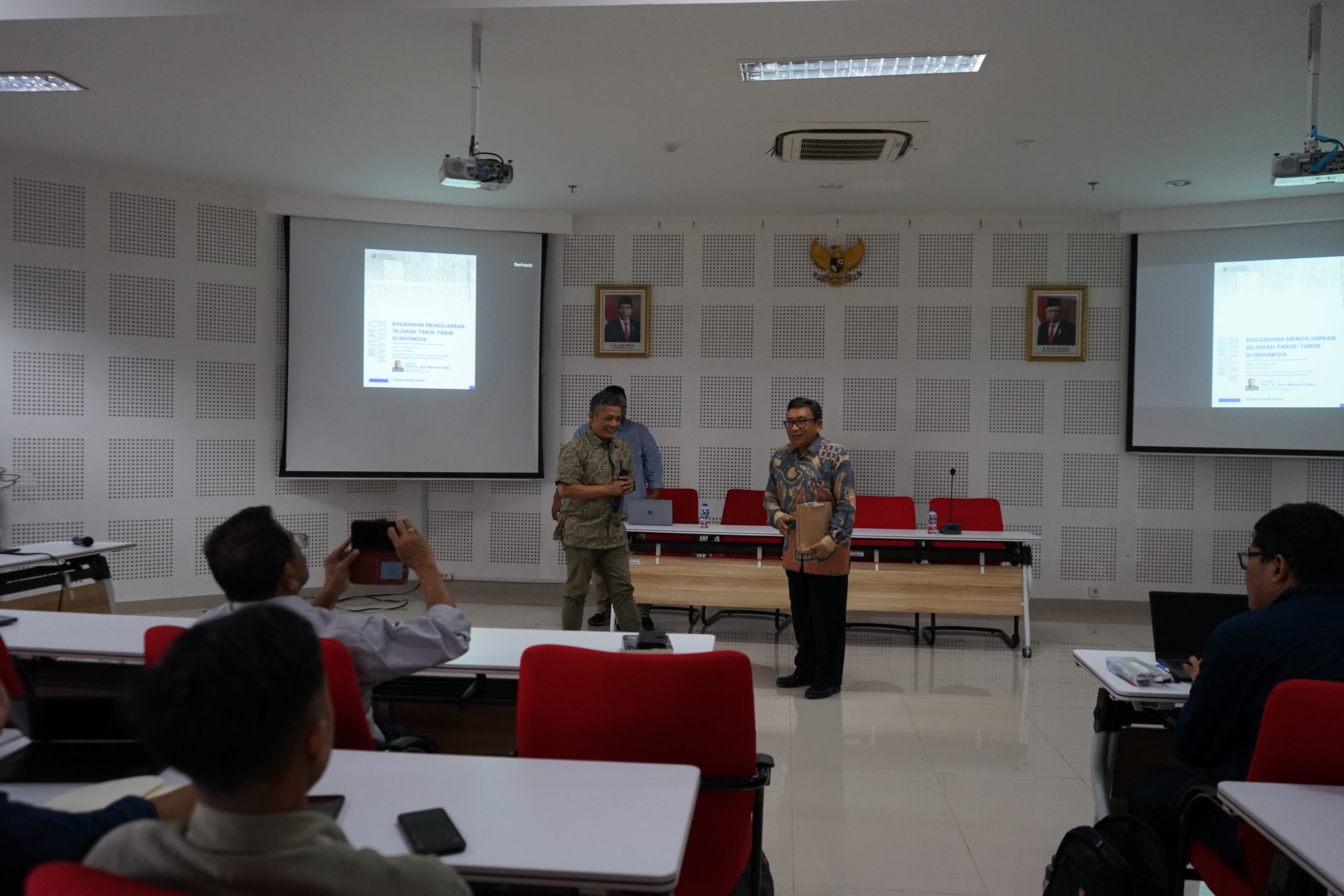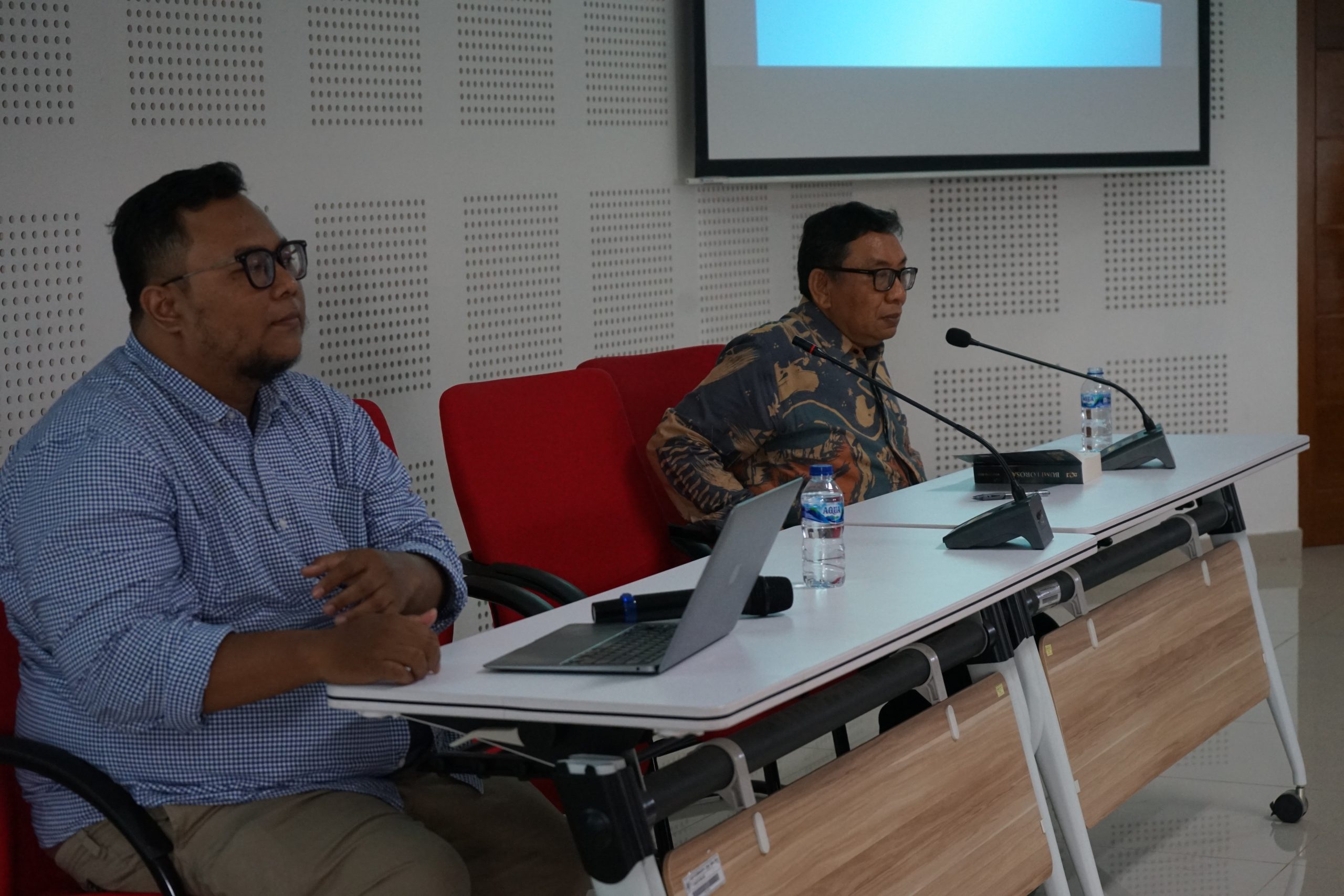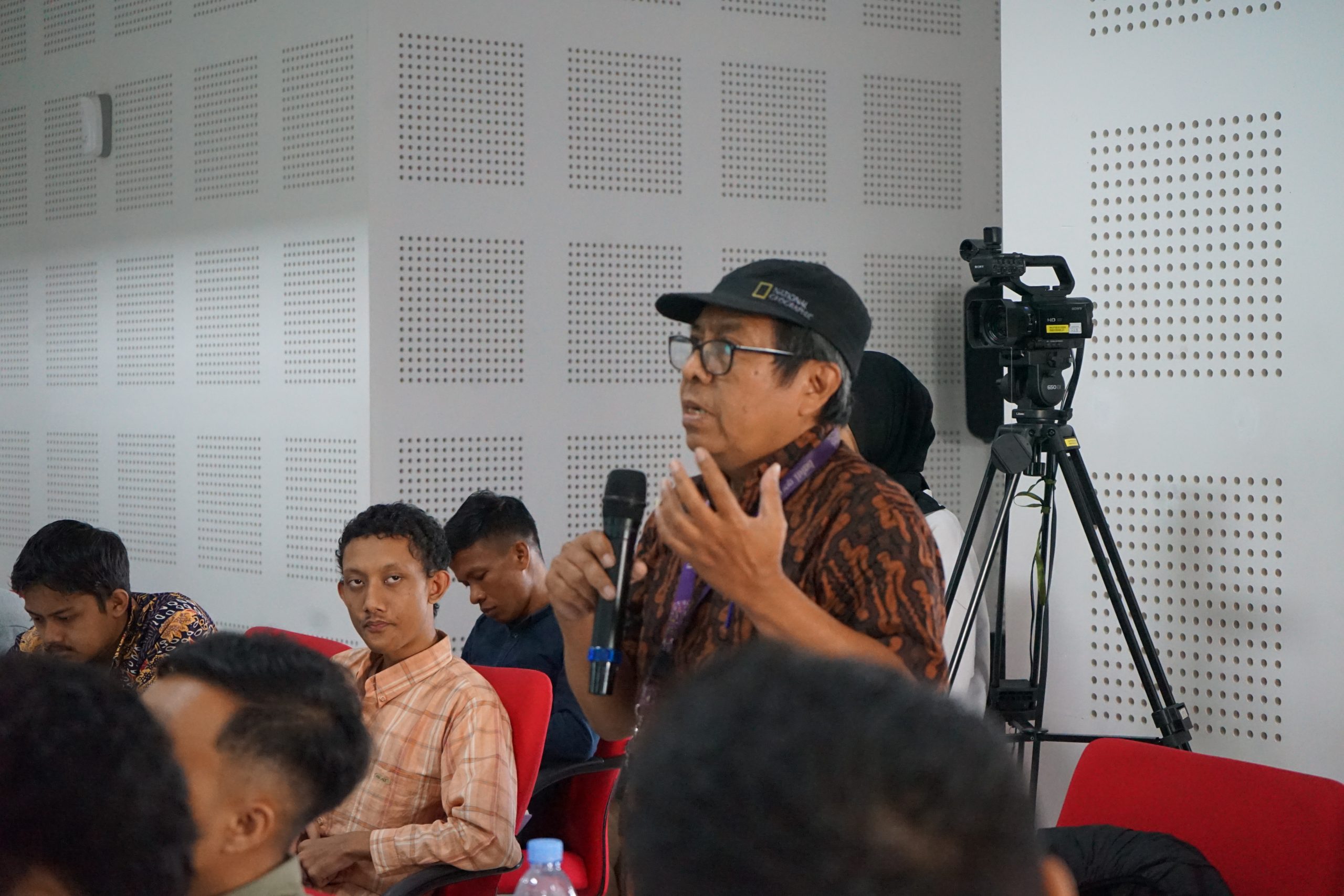
On Tuesday, The UGM History Department held a public lecture titled “How to Teach the History of Timor Timur in Indonesia” (9/10). Prof. Dr. Asvi Marwan Adam, a historian and researcher at the National Research and Innovation Agency (BRIN), was the keynote speaker for this lecture. The primary goal of this public lecture was to raise awareness about the history of Timor Timur, which is often presented with a limited or biased perspective.
In his opening address, Dr. Abdul Wahid, Head of UGM’s History Department, noted that this topic is particularly intriguing since it deals with a former Indonesian province and is rarely discussed in depth by academics.

“Timor Timur is our neighbor. We are so close to each other, yet unfortunately, very few Indonesians have thoroughly studied its history,” said Abdul Wahid.
In his lecture, Prof. Dr. Asvi Marwan Adam explained that his deep interest in the history of Timor Timur stemmed from the fact that it has largely disappeared from the history curriculum in Indonesia.

“With Prabowo’s election as president and the appointment of several ministers who previously served in Timor Timur, could this pose a challenge in teaching Timor Leste’s history? Will the history being written or taught be aligned with those currently in power, meaning that military violence in the past could be covered up?” he questioned.
He emphasized that writing the history of Timor Timur is incredibly complex, especially due to the numerous human rights violations that occurred there. This complexity is reflected in the many films, books, novels, and memoirs focusing on human rights abuses in Timor Timur. Prof. Asvi’s presentation sparked an engaging and lively discussion, with the audience enthusiastically asking questions over two separate discussion sessions.

The panel concluded that a deep understanding of Timor Timur’s history is crucial to be presented objectively and openly within Indonesian education. Understanding the historical events in Timor Timur will help Indonesians view the past with a broader perspective and comprehend its impact on regional relations and humanitarian issues. By studying this history, young generations can become more critical of political interference in historical narratives and better appreciate the importance of justice and reconciliation processes.
[PR of FIB UGM: Aldiza, Translated: Aldiza, Photo: Adnan, Putu]

